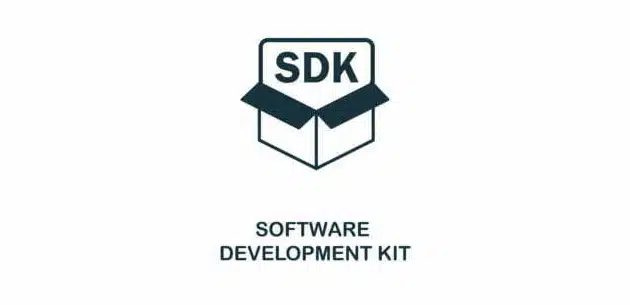The recent attention data privacy has gotten among users and regulators is forcing changes industry wide. App developers and marketers used to dig deep into user-level data to collect insights to create monetization and advertising strategies. But in the last few years, developers and marketers have had to reduce their collection of user data. Now they are faced with two choices; either invest in more SDK’s or keep using the few popular SDK’s such as ones provided from Facebook, Apple, and Google.
For those who don’t know, SDK’s means Software Development Kits. These are a set of software development code samples, tools, processes, libraries, and guides developers use to build or improve apps. In this case, we are talking about the SDK’s they use to foster digital marketing on apps. SDK’s give marketers analytic insights for monetization, attribution, demographics details, campaign testing, etc. This helps them better optimize and manage their campaigns and strategies.
Currently, developers and marketers rely on Facebook, Apple, and Google for data insights. In the last few years, these companies have been in the news several times for breaching user data privacy. To give you an idea of the control these companies have on the SDK industry here are a couple quick facts. 88% of ad-monetized Android apps use Google’s Admob SDK, and 19% of Android apps use the Facebook Audience Network SDK. Apple not to be forgotten, also has a firm grip on a large portion of apps. Let’s discuss more about the SDK market and how SDK integration works.
The SDK Market and Adoption
While there are several SDK’s for developers to choose from, Facebook, Apple, and Google are popular options because of their reach and ecosystems. Developers typically don’t have the time and resources to experiment with SDK’s that offer limited industry reach and ecosystems. SDK maintenance is an ongoing process that takes a lot of time. The SDK may no longer be relevant by the time the developer is done building because of new changes in the SDK market. Typically, developers must update their apps, resubmit to the app stores, and wait for approval. The approval process usually takes time. SDK’s also tend to have quarterly updates, which further complicates SDK adoption. No surprise developers often stick to a few proven SDK’s that provide a wide range of features and functions.
As a developer or marketer, it is more logical to stick with the three tech giants. Keep in mind they have ongoing antitrust cases challenging their policies and practices regarding data privacy. As time goes on, they may be forced to break their ecosystems to give their subsidiaries some form of autonomy. Thereby limiting the seamless aggregation and analysis of user data. Apple is already preparing for the disparate data-centric shift with its new iOS 15. New features will help users control and monitor apps’ use of their data.
At this point, it appears developers and marketers need to start preparing for an SDK market where there are no more monopolies. With the shift towards privacy-centric policies, developers and marketers should look for new SDK’s to ensure that they get the same quality of functionality and analytic insights for their apps. Simply put, the data privacy trend will not favor developers and marketers who put all their eggs in one or (a few) baskets.
The Concern of Security and Compliance with SDK Offerings
App downloads increased by 7% last year to reach 218 billion downloads. Worldwide app store spends also increased by 20% in 2020 to reach $143 billion. The increase in user engagement in the app market suggests that the industry will continue to grow. Therefore, developers need to start exploring other new SDK options to expand their SDK portfolio. But the concern for most developers about the adoption of random SDK’s is security and functionality. Developers typically don’t have this concern with popular SDK’s.
One of the reasons developers are comfortable with popular SDK providers is because they — Google, Apple, and Facebook — provide security and conduct quality control and compliance checks. Or so they claim. But developers tend to trust them without exactly checking to confirm. The blind trust that can be put into these SDK’s is a huge risk that can affect developers and users negatively.
However, SDK providers have started addressing the issue of compliance by incorporating 3rd-party audits and certifications. Companies such as WhiteSource and Snyk provide services such as assessing SDK’s process of transmitting or storing Personally Identifiable Information (PII) and analyzing source code to detect potential vulnerabilities. Such third-party organizations make it easier to find SDK providers that are reliable and accountable. As a result, developers and marketers will have less work scrutinizing many SDK offerings before choosing. They won’t have to keep sticking with popular SDK’s, rather, they can adopt random SDK’s that meet their needs to integrate into their apps.
Moving Forward
Although the current trend is at an early stage, one thing is clear, the new regulations surrounding data privacy will push the SDK market forward. The shift will create more opportunities for other SDK offerings that are not part of the giant tech monopolies. As a result, developers and marketers will be able to diversify and explore broader SDK integrations for their apps. In return, they will get better data insights, more profit opportunities, and will get to position themselves better for the new era of privacy-focus digital marketing.
The era of tech giants taking user data without permission to use as they please and users not being sure what type of data these tech companies collect is over. As a marketer or a developer, you have to move with the tides, not be caught unprepared. Better to start learning more about SDK offerings outside of Google, Apple, and Facebook now than wait until they break down their subsidiaries and leaving you stranded. Keep in mind that when you are not sure what SDK provider to trust outside of these tech monopolies, you have 3rd-party certifications and audits to help you confirm.






